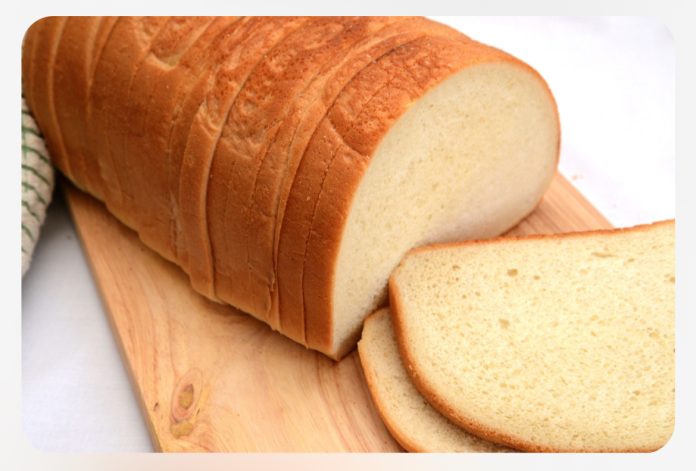White bread is often considered less healthy than whole grain bread for several reasons:
- Nutrient Content: White bread is made from refined flour, where the nutrient-rich bran and germ of the wheat kernel are removed during processing. This results in a loss of essential nutrients such as fibre, vitamins (like B vitamins), and minerals (like iron and magnesium) that are present in whole grains. Without these nutrients, white bread offers little nutritional value compared to whole grain bread.
- High Glycemic Index (GI): White bread has a high glycemic index, which means it can cause a rapid spike in blood sugar levels after consumption. This rapid rise in blood sugar can lead to a subsequent crash, leaving you feeling fatigued and hungry shortly after eating. Over time, regularly consuming high-GI foods like white bread may contribute to insulin resistance and an increased risk of type 2 diabetes.
- Lack of Fibre: The refining process strips away the fiber content found in whole grains. Fibre is crucial for digestive health as it aids in digestion, helps regulate blood sugar levels, and promotes a feeling of fullness, which can aid in weight management. The lack of fibre in white bread can contribute to constipation and may increase the risk of certain digestive disorders.
- Lower Satiety: Due to its low fibre content and high glycemic index, white bread is less filling compared to whole grain bread. This can lead to overeating and weight gain over time, as individuals may consume more calories to feel satisfied.
- Linked to Chronic Diseases: Studies have linked a diet high in refined grains, such as those found in white bread, to an increased risk of chronic diseases such as heart disease, certain cancers, and obesity. The lack of nutrients and the rapid spike in blood sugar associated with white bread consumption are contributing factors to these health risks.
However, UK supermarkets may soon witness a “healthier” iteration of white bread, as per the findings of scientists.
A group of researchers at Aberystwyth University will delve into the milling and blending processes for white flour. Peas, beans, and oats might find their way into wheat flour to enhance its nutritional profile. This research endeavour has received funding from Innovate UK, the UK’s national innovation agency. The agency’s Better Food For All initiative has thrown its weight behind 47 projects aimed at elevating food quality, enhancing nutrition, and prolonging the shelf-life of food products.
According to the NHS website, white bread contains less fibre compared to wholegrain, wholemeal, or brown bread. For those who lean towards white bread, the NHS advises seeking out options with higher fibre content.
Describing the project as a “very exciting opportunity to improve people’s diets,” Dr. Catherine Howarth from Aberystwyth University’s Institute of Biological, Environmental, and Rural Sciences highlighted its potential benefits for individuals partial to the appearance and sensory attributes of white bread. “The project underscores how our leading plant research here in Wales can impact people’s lives,” she added.
The team at Aberystwyth in Ceredigion is collaborating with organic millers Shipton Mill on this venture. Chris Holister from Shipton Mill stressed that the success of a crop could be gauged through “variety and nature-friendliness.” “We hope that this endeavour can contribute to a healthier and more contented diet for many,” he added. “Through initiatives like this, the UK food industry can wield a positive influence, generating innovative products and solutions that not only enhance people’s health but also stimulate job creation within the sector.”
If you like our content, join us in helping to bring reality and decency back by SUBSCRIBING to our Youtube channel: https://www.youtube.com/channel/UCQ1Ll1ylCg8U19AhNl-NoTg AND SUPPORTING US where you can: Award Winning Independent Citizen Media Needs Your Help. PLEASE SUPPORT US FOR JUST £2 A MONTH https://dorseteye.com/donate/







